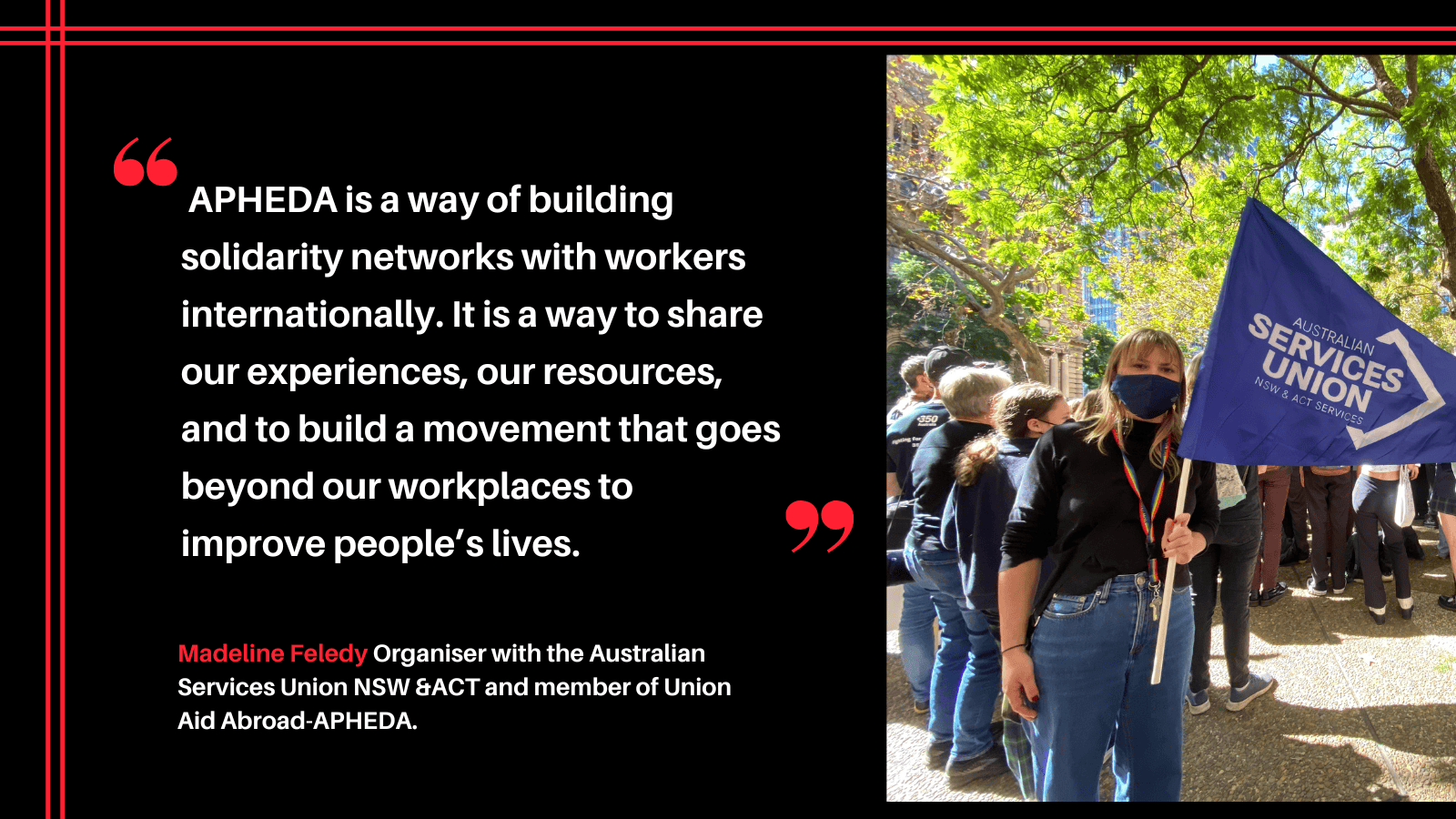Madeline Feledy is an organiser with the Australian Services Union NSW &ACT branch. She has been a member of Union Aid Abroad-APHEDA for three years.
What does being union mean for you?
For me, being union is about working together to improve the lives of working people and to create progressive social change in our community.
What does it mean to you to be APHEDA?
When we work together collectively, we stand in solidarity with workers and their struggles everywhere. APHEDA is a way of building solidarity networks with workers internationally. It is a way to share our experiences, our resources, and to build a movement that goes beyond our workplaces to improve people’s lives.
To be a member with APHEDA is to stand with workers in their struggles. For so many unionists, being an active member of a trade union bears such a great cost to your safety, your security, and your ability to work and provide for your family. Being APHEDA is one way that I can support and stand with these workers as they fight to create social change in their communities.
Why is building internationalism in Australia important?
I believe that building internationalism is central to improving outcomes for workers across the world. For me, having an internationalist perspective starts with understanding the realities that workers in other parts of the world are facing today. It is key to changing a system that is built on global divide and exploitation. Despite the many challenges working people in Australia continue to face, unionists in developing countries look to Australia and the achievements we have made.
I think back to a meeting with factory workers, mostly women, in Cikarang Bekasi, Indonesia (the largest industrial complex in Southeast Asia) where we spoke at length about paid parental leave in Australia. These women were working between 8–16-hour days and many had experienced miscarriages due to the unsafe working conditions and stress they had been under. We spoke at length about what paid parental leave would mean to them, and how the movement achieved this in Australia. Understanding this, and what we as a movement in Australia can do to support workers in achieving their aspirations, respect, and dignity is why internationalism is so important.
What part of APHEDA’s work are you most connected to or proud of and why?
I am proud of all the work that APHEDA does but am most connected to their partner Local Initiative for Occupational Safety and Health Network (LION) in Indonesia. I had the privilege of meeting with unionists from LION in January this year. LION is a Work Health and Safety group that works with workers, unions, and the community to raise awareness about the health risks of asbestos and to campaign against the use of it.
LION have successfully campaigned for an asbestos ban in the City of Bandung. To see first-hand the challenges that LION face, including limited internal resources, limits in scientific and medical technology, a pro-asbestos lobby, and a community where having food on the table and a roof over your head comes before your safety at work, was difficult. But to see their spirit and commitment to the struggle despite these challenges is what makes me proud of their work and dedicated to supporting in all the ways I can.

